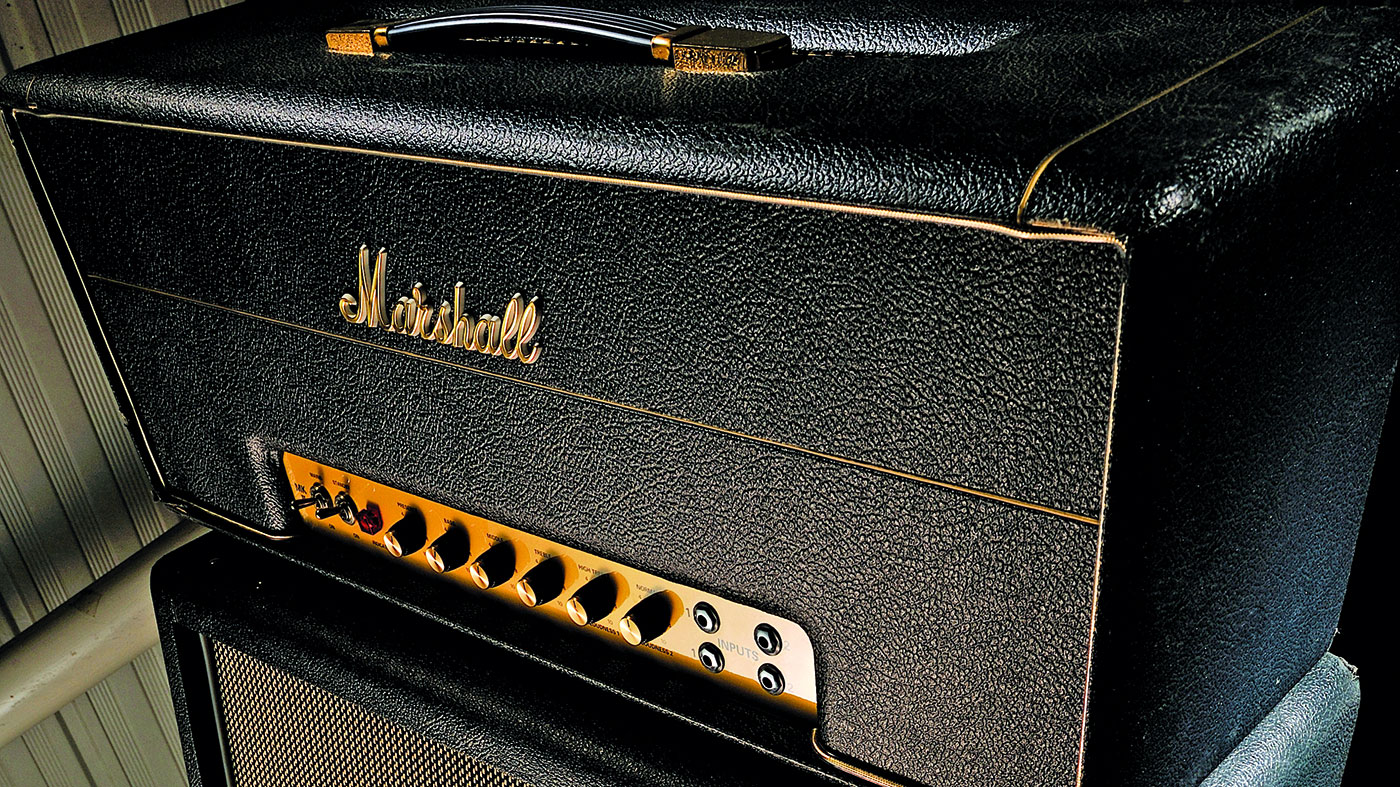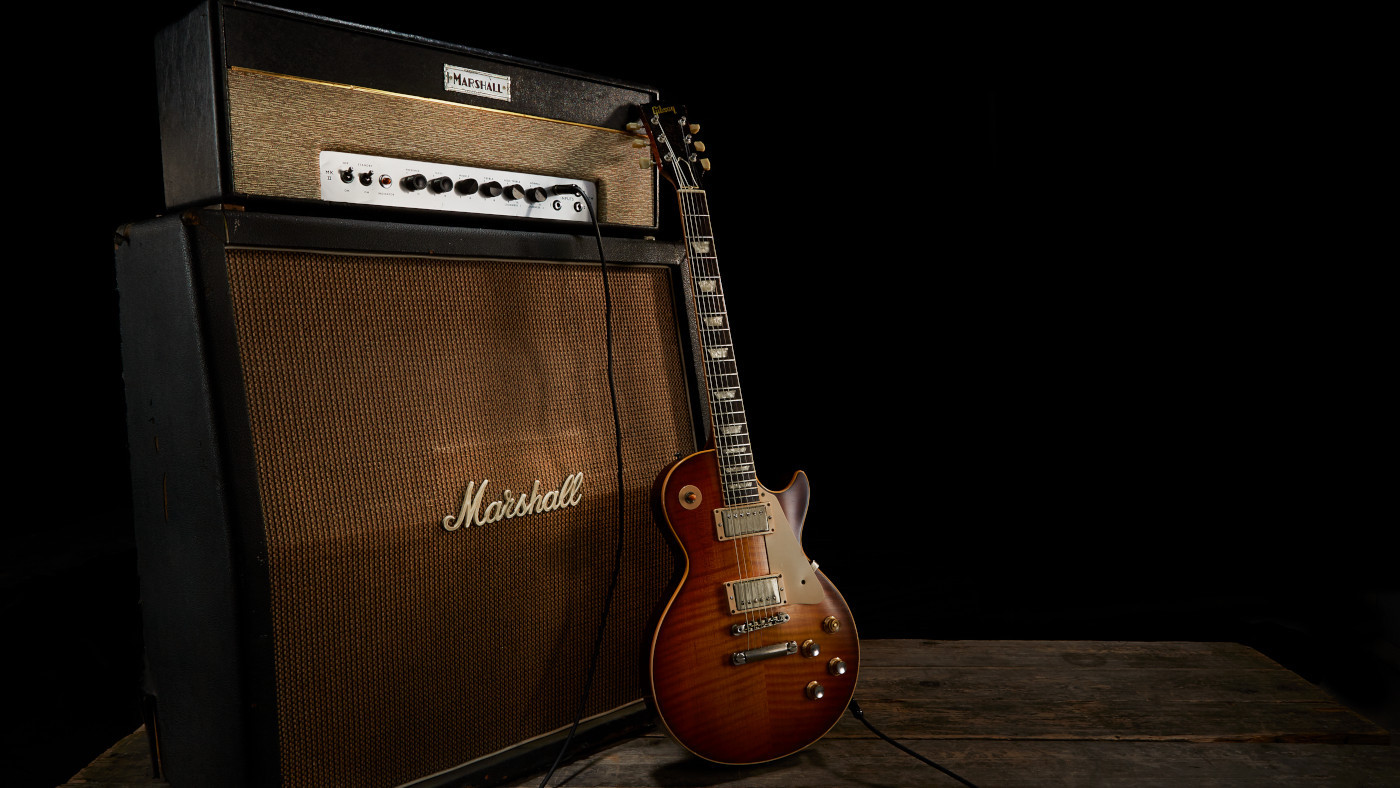Marshall has been sold to Swedish speaker company Zound, ending over 60 years of family ownership
Zound Industries made its name making Marshall licensed speakers and now owns the legendary British brand. An end of an era, but what does it mean for guitar amps under the newly formed Marshall Group?

After over 60 years of family ownership, the iconic British guitar amp brand Marshall Amplification has been sold to Swedish speaker company Zound Industries in a deal that will see both brands trade as the Marshall Group.
The brand first collaborated on a range of Marshall-branded headphones and Bluetooth speakers for the consumer market under a 2010 licensing deal. It was a deal that was hugely successful, taking the Marshall brand identity onto the streets, with its appeal extending beyond guitar players and reaching people who had never picked up the instrument before. Other brands such as Orange and Fender diversified accordingly, launching their own ranges of bluetooth speakers and headphones.
In agreeing to the takeover, the Marshall family will remain the largest shareholder, owning a 24 per cent stake in the Marshall Group. Zound will acquire Marshall Amplification, plus its subsidiaries Natal Drums, Marshall Records, and Marshall Live Agency.
With double-digit profitability and combined revenues of over $360 million, the Marshall Group is in a strong position to compete in both consumer and musician markets. But the big question for musicians is what will the move mean for the future of an amplifier brand that changed the face of popular music in 1962 with the launch of the late Jim Marshall’s first amp design, the JTM45, and provided the sound and the power for a new generation of players including Pete Townshend, Jimi Hendrix and Eric Clapton.

The most-recent high-profile launch from Marshall was its Vintage Reissue Pedals, which saw the return of the cult classic Guv’Nor, Drivemaster, Bluesbreaker and Shredmaster drive pedals. New amp designs, however, have been thin on the ground.
Jim Marshall’s heirs, his daughter Victoria Marshall and son Terry Marshall, will sit on the board of the Marshall Group, and said in a statement that the move will extend the brand’s appeal.
“Since my father and I created the original Marshall amp back in 1962, we have always looked for ways to deliver the pioneering Marshall sound to music lovers of all backgrounds and music tastes across the world,” said Terry Marshall. “I’m confident that the Marshall Group will elevate this mission and spur the love for the Marshall brand.”
Want all the hottest music and gear news, reviews, deals, features and more, direct to your inbox? Sign up here.

Victoria Marshall said the Marshall Group would preserve the brand’s legacy in an “ever-modernising music industry”.
“Having worked alongside my father during his later years, I know he would be excited at this direction and the potential to reach a larger worldwide audience with innovation and passion which he always had in spades,” she said.
The FT reports that there will be no immediate change in operations, with amps continuing to be made in Bletchley, England, and at their factory in Vietnam. Jeremy de Maillard, Zound’s chief executive, told the paper that by consolidating its concerns in one company, the Marshall Group was well placed for “faster innovation and a deeper connection with musicians and music lovers”.
“We’ve always made sure that the acoustic department at Marshall was satisfied with the quality of the products created by Zound for the past 12 years,” said de Maillard.
Time will tell where the Marshall Group will take its amplifiers. But if the innovation that de Maillard speaks of is brought to bear on amp design, there is plenty of room to manoeuvre. Marshall has yet to debut a floor-based amplifier, and its range of tube amps remain largely unchanged despite the onward march of digital technologies and IR cab cloning technologies being integrated in the design of their competitor's products.
Jonathan Horsley has been writing about guitars and guitar culture since 2005, playing them since 1990, and regularly contributes to MusicRadar, Total Guitar and Guitar World. He uses Jazz III nylon picks, 10s during the week, 9s at the weekend, and shamefully still struggles with rhythm figure one of Van Halen’s Panama.
